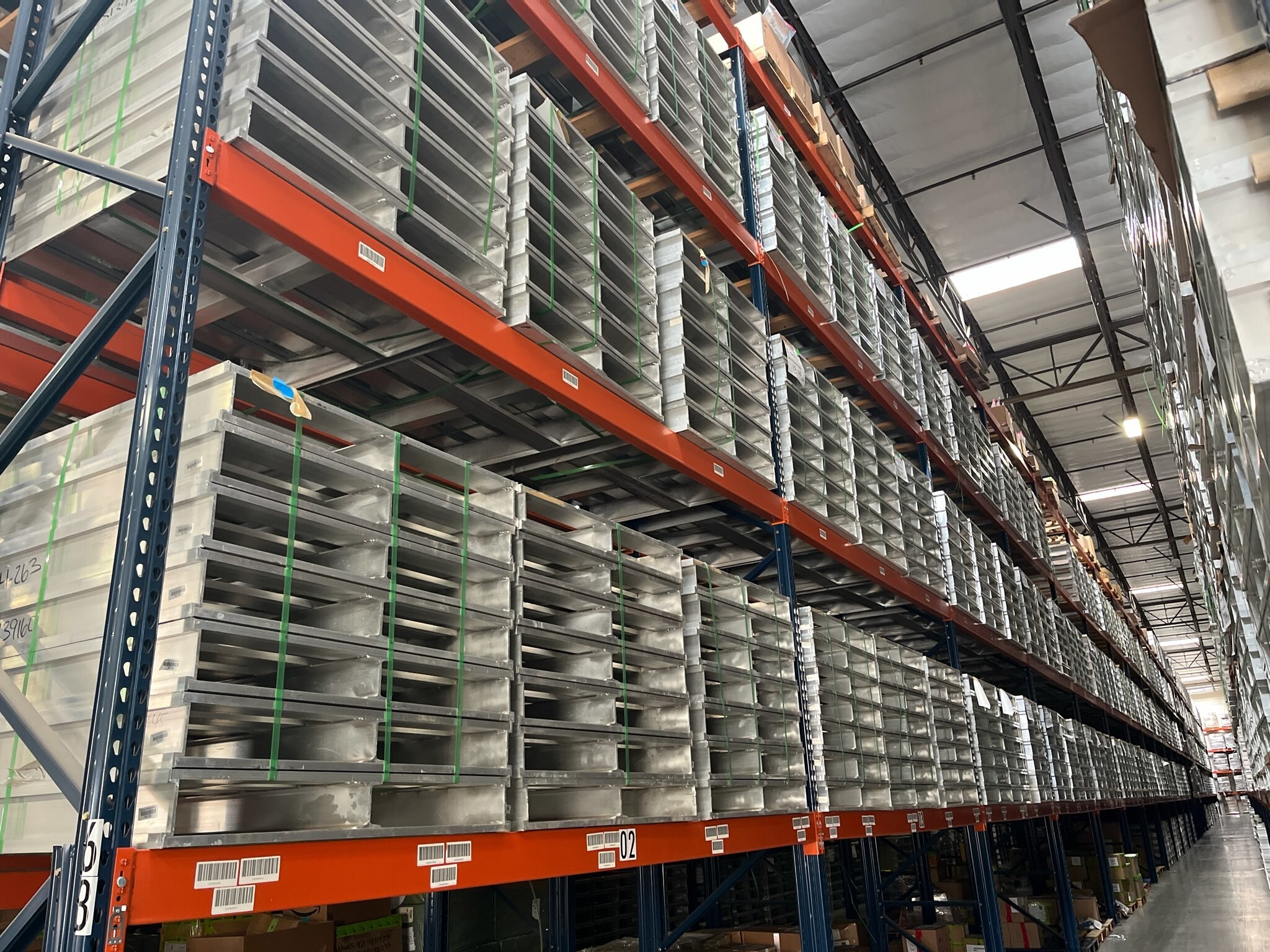Aluminum Scrap Markets

November 13, 2025
ADI's Benson setback could tighten UBC supply chain in 2026
Written by Nicholas Bell
AMU apologizes to ADI and Owl’s Head Alloys for text in an original version of this article, that read “Owl’s Head Alloys’ Mississippi plant remains idle.” The plant is not idle. It is operating in compliance with MDEQ. The subhead and the text below have been corrected to reflect that.
A lawsuit filed in August against Aluminum Dynamics Inc.’s planned Benson recycling facility in Arizona remains unresolved in Cochise County Superior Court.
As AMU reported in September, the plaintiffs are seeking both a preliminary injunction to halt any immediate site work and a permanent injunction that would stop construction of the facility until the city reissues permits under a different procedural framework.
The plaintiffs — two residents and the nonprofit Health Over Wealth Benson — allege the city’s Planning and Zoning Commission overstepped its authority by granting Aluminum Dynamics (ADI) a conditional use permit rather than requiring a formal variance for the plant’s 88-foot-tall building.
Lawsuit update
Mississippi-based ADI and the City of Benson filed motions to dismiss on Oct. 6, arguing the approval complied with local code and the plaintiffs’ lack standing because they have not shown injury distinct from the general public. In other words, the defendants claim that those filing the lawsuit don’t have a direct stake in the outcome of the case, as their claims of harm (noise, emissions, etc.) do not affect them in a uniquely, legally recognizable way as opposed to the entirety of the community.
As of early November, the court had not ruled on either motion.
While the lawsuit does not automatically halt construction, its outcome could determine whether the city must re-process the height request through its Board of Adjustment, potentially pushing the project back several months.
Tangential regulatory components
ADI’s Benson facility also awaits a Class I (Title V) air quality control permit from the Arizona Department of Environmental Quality (ADEQ). The public comment period, which was extended through mid-September, drew heavy participation from Benson residents and regional environmental groups. ADEQ still lists the permit as “pending,” and no final determination has been issued.
Though separate from the lawsuit, the drawn-out permitting process shows how public resistance has continued to slow the project’s path through key pre-construction approval.
If ADEQ approves the permit, an additional 45-day review period by the U.S. Environmental Protection Agency (EPA) will follow before the permit becomes effective. Until then, ADI is limited to site preparation and infrastructure work that does not involve emissions-producing equipment.
Community pushback escalates
Public frustration with the city leadership’s handling of the project has spilled over into municipal politics.
On Oct. 29, recall petitions were filed targeting four of Benson’s six council members who supported the ADI project, according to local news station KOLD 13. Another local outlet station, KGUN 9, first noted the recall effort’s launch in early August.
The petitions target council members who supported the project’s original approval. A shift in the council’s composition could complicate future city actions if a court orders the permit to be reprocessed or additional approvals are required. Even if successful, it’s not clear whether a new council could revoke ADI’s existing permit outright, though it may tighten oversight on permitting conditions.
The Cochise County Recorder’s Office has up to 75 days to verify the signatures, a timeline that could set a recall election for as early as May.
Benson’s strategic role
The Benson smelter is designed to process roughly 300,000 metric tons per year (t/yr) of post-consumer and industrial scrap into cast aluminum ingots for Aluminum Dynamics’ new Columbus, Mississippi rolling mill. ADI is the aluminum arm of Fort Wayne, Indiana-based Steel Dynamics Inc.
The mill was commissioned in mid-2025 and is expected to ramp up to a capacity utilization of 75% of its 650,000t/yr nameplate capacity by the end of 2026.
Given the targeted scrap utilization rates these days in rolling mill’s melt mixes, the Benson facility’s planned processing capacity could theoretically supply the vast majority of the scrap feedstock required if the Mississippi mill operates at roughly 75% capacity.
The integration plan hinges on reducing the need for external scrap purchases and insulating the market from scrap market volatility. But if the Arizona plant remains in legal or permitting limbo through 2026, ADI would likely have to rely more heavily on the spot scrap market to keep the mill supplied.
Owl’s Head Alloys Mississippi
Kentucky-based Owl’s Head Alloys, a 100% employee-owned secondary aluminum processor, was selected by Aluminum Dynamics in 2023 under a long-term agreement to handle a portion of the scrap and dross processing requirements for the new Mississippi rolling mill.
Around the same time, Owl’s Head announced plans to expand its operations with a facility in West Point, Miss., about 20 miles from ADI’s Columbus mill.
The first of three furnaces was commissioned at the end of 2024 in compliance with MDEQ.
That said, public records from the Mississippi Department of Environmental Quality (MDEQ) show the West Point project remains in a construction state with operational capabilities MDEQ issued a pre-construction permit in early 2024 followed by an air construction permit in August 2024. This construction permit authorized installation and operation of emission-producing equipment by OHA.
Michael J. Boyle, President of Owl’s Head Alloys, stated “Our West Point facility is fully compliant with MDEQ water and air requirements. We have been operating since January 2025 in support of ADI’s commissioning efforts this year. OHA is currently installing equipment in anticipation of a first quarter 2026 commissioning of our second furnace.”
Mr. Boyle concluded the company’s commissioning of the new facility in West Point has been fully supported by the Golden Triangle LINK, the State of Mississippi, and our cornerstone customer Aluminum Dynamics.
Without Benson, ADI ramp-up could strain UBC availability
The exposure comes at a time when the US scrap market, while stable now, could tighten quickly.
Imports of used beverage can (UBC) scrap have increased and exports have eased, keeping domestic availability comfortable for the moment. Buying spreads for UBCs relative to the Midwest transaction price — elevated by all-time high Midwest premiums — remain historically low.
ADI reportedly began stockpiling scrap well ahead of its commercial rollout. But if the Benson delay persists, that cushion may not last. If the Benson plant has not broken ground, commissioning the site in less than nine months appears unlikely without an accelerated build once permits are secured. Parent company Steel Dynamics has not provided an updated commissioning window for the Benson facility.
According to the company’s most recent quarterly earnings, its metal recycling operations, which includes national processing network of OmniSource, reported a little more than 110,000t of non-ferrous scrap shipments in the quarter.
That figure does not distinguish between aluminum and other non-ferrous metals such as copper, and it represents both external sales and any potential volumes consumed internally at SDI’s own facilities.
That said, on an investor call about the company’s aluminum expansion last year, executives said Steel Dynamics handles roughly 225,000t of aluminum scrap a year (a little more than 55,000t quarterly). That equates to roughly half of the non-ferrous shipment volume reported in the most recent quarter, implying that the balance consists largely of copper and other non-aluminum metals.
Even with OmniSource as an internal sister subsidiary, OmniSource could theoretically supply scrap volumes equal to roughly half of the melt mix at a 75% operating rate, assuming ideal conditions: The right grades of scrap, full internal redirection, and no conflicts with OmniSource’s existing industrial accounts. That 50% figure would likely be the absolute upper bound of what could be internally supplied.
In reality, OmniSource has been operating long before SDI’s foray into aluminum, and a substantial share of its non-ferrous stream is likely handled under long-standing tolling and service arrangements with industrial consumers. As a result, only part of that volume is likely available for integration into ADI’s melt mix.
While the company maintains an extensive scrap collection network, that aggregate volume illustrates the limited quantity of non-ferrous feedstock available for redirection if the Benson facility’s startup is delayed.
Conclusion
For now, ADI faces a multi-front delay: A pending court ruling ton the zoning dispute, a stalled air permit, and a volatile local political climate.
None of these developments have been publicly acknowledged by the company as potential obstacles to the Mississippi mill’s ramp-up.
When first announced, Steel Dynamics projected such a facility in the southwest would begin operations toward the end of 2025 officially or “in 2025 or 2026” according to comments on previous earnings calls, roughly in step with the ramp-up of the Mississippi mill.
If ADI secures its permits and clears the legal challenge within the next several months, the project could resume construction in early 2026 and align with the broader ADI closed-loop strategy.
Alternatively, if the Mississippi mill continues to ramp up regardless of Benson’s status, the company will need to source far greater volumes of scrap on the open market.
That could tighten availability of UBCs and similar grades considerably, raising the potential for a sharp run on feedstock sometime next year as competing buyers absorb what’s left in circulation.
A sudden announcement or earnings call disclosure could spark not only a tangible run on scrap, but a psychological one sending buyers scrambling to secure supply once the scale of the gap becomes explicit.







